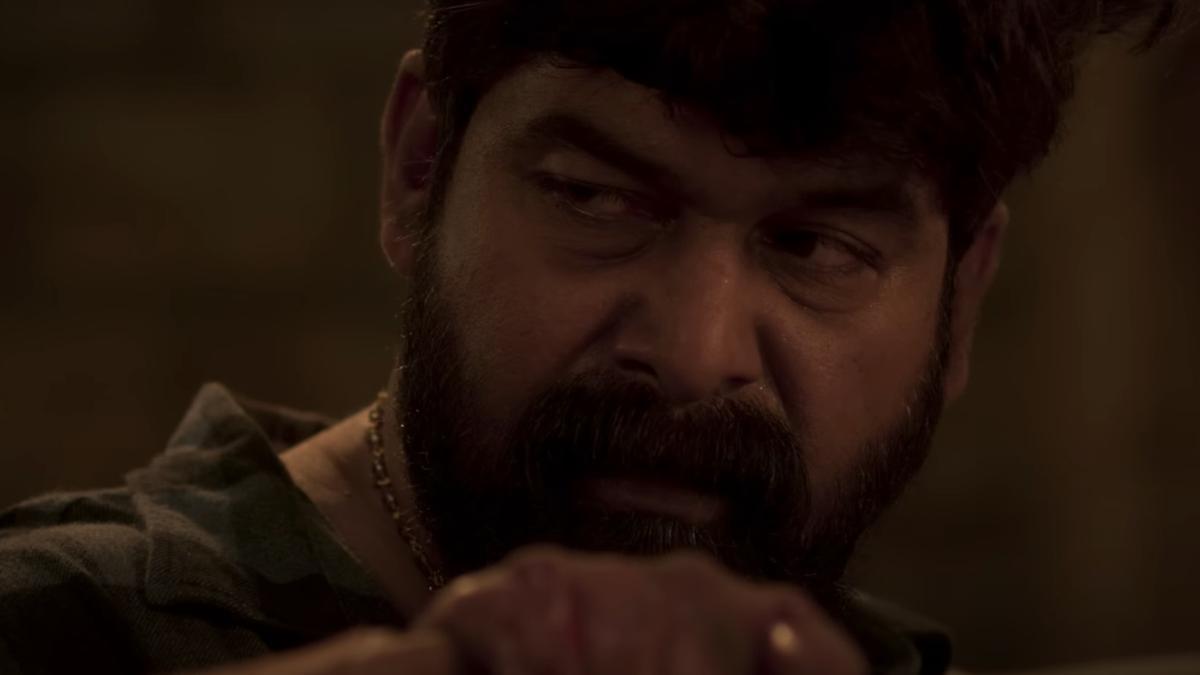
In a world enveloped by shadows and secrets, Pani, a film starring and directed by Joju George, delves deep into the world of crime and the voracious nature of revenge. Right from the chilling start, where a brutal murder occurring in broad daylight sets the tone, expectations are rife that this act of violence will become the central pivot around which the entire narrative rotates. However, what unfolds is somewhat unexpected and layered.
As the film progresses, we find ourselves following the journey of Don, played by Sagar Surya, and Siju, portrayed by V.P. Junaiz, who are embroiled in a violent crime spree. These two young men, relatively new to the underbelly of crime, find themselves increasingly entangled in a web of violence and moral decay. Initially intoxicated by the thrill of easy money from their inaugural hit, these amateur perpetrators find themselves irrevocably changed after a petty skirmish erupts in a local supermarket later in the day.
It is within these early sequences that the characters begin their transformation. Don and Siju undergo a dramatic metamorphosis, from errant novices to chilling hunters. Crossing paths with Giri, the lead character played by Joju George himself, they unwittingly provoke a man steeped in the complexities of Thrissur’s crime syndicate. Joju George’s Giri is a multi-layered character with an intricate backstory, and it is his interaction with the two fledgling criminals that becomes the film’s focal point.
The film’s narrative, although appearing at a surface level as a conventional tale of revenge, in truth navigates deeper through its focus on the unpredictable nature of human behavior. The psychological tension and complex web of interactions take precedence over the simple revenge trope, creating a tapestry of intrigue and unexpected developments. Even within the confines of a powerful mafia syndicate, no entity is invulnerable; no position safe from betrayal and bloodshed. This realization is ingeniously captured in the film when one character remarks on the apparent invisibility of their small-time operations in contrast to the visible and dominant crime families.
.
Joju George, marking his debut as both screenwriter and director, skillfully portrays a vivid picture of the syndicate’s intricate internal dynamics. The genesis of this crime family is deftly recounted, tracing their origins from college camaraderie to their eventual establishment as a formidable syndicate. This part of the narrative not only offers insight but also adds a layer of relatability and depth, as it explores themes of loyalty, friendship, and betrayal.
The ensemble cast, including Prashanth Alexander, Bobby Kurian, Sujith Sankar, and Abhaya Hiranmayi, adds strength to this portrayal, each actor contributing to the authentic representation of what seems like a tightly-knit group. Furthermore, Giri’s intimate relationship with his partner, Gowri (played by Abhinaya), adds an essential emotional dimension to the storyline, grounding the violence and chaos in an emotive context.
As the plot unfolds, the crime syndicate maintains an outward appearance of decorum, leveraging their influence to keep their criminal exploits hidden beneath a veneer of respectability. With influential allies like ACP Kalyani, expertly played by Chandini Sreedharan, they perpetuate their illusions of legitimacy. This duality — respectable entrepreneurs to the outside world, ruthless crime lords in actuality — is masterfully executed and ensures audience engagement throughout the film.
However, Pani is not without its share of visceral scenes. Joju George does not shy away from showing the brutality of the world depicted, employing graphic elements of violence and moments of unsettling intensity that stay with the viewer. Despite an occasionally predictable storyline — particularly with the overwrought use of sexual assault as a plot device — the film’s skillful pacing and suspenseful storytelling maintain its grip on the audience.
In conclusion, Joju George’s Pani deserves recognition for its execution and ability to engage despite an underlying narrative that treads well-worn paths. The film succeeds in drawing viewers into its gritty world, complimented by strong performances and thoughtful direction. It stands as a testament to Joju George’s budding prowess as a filmmaker. Currently captivating audiences in theatres, Pani is a film that demands attention from admirers of thrillers and dramas alike, providing a gripping viewing experience that lingers long after the credits roll.










